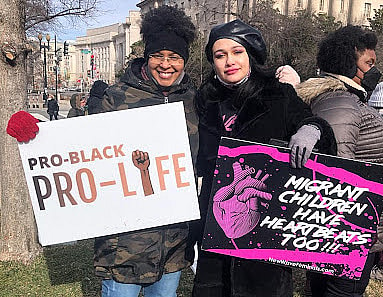LOUISVILLE, Ky. (AP) — A federal judge on Thursday extended an order blocking key portions of a new Kentucky abortion law that had forced the state’s two clinics to temporarily halt abortions.
The ruling said the law’s 15-week ban on abortions would remain blocked until the U.S. Supreme Court rules on a related abortion case in Mississippi.
The ruling by U.S. District Judge Rebecca Grady Jennings means that Kentucky officials cannot enforce other disputed provisions until the state adopts and funds regulations under which abortion providers would have to comply.
The judge had previously suspended enforcement of the measure passed by the Republican-dominated legislature last month over a veto by Democratic Gov. Andy Beshear.

The judge’s order on Thursday extended the suspension of the measure’s ban on abortions after 15 weeks of pregnancy and the requirement that women be examined by a doctor before receiving abortion pills. It also applies to new restrictions and reporting requirements with which the Kentucky clinics said they couldn’t immediately comply. Noncompliance could result in stiff fines, felony penalties and revocation of physician and facility licenses.
“Kentuckians can breathe a sigh of relief that these extreme restrictions will remain blocked and abortion will remain accessible for now,” said Rebecca Gibron, CEO for Planned Parenthood in Kentucky. “For nearly a week (in April), we were blocked from providing this critical and time-sensitive health care. We can’t go back.”
Kentucky Republican Attorney General Daniel Cameron, who is defending the new law in court, said the judge’s latest order was disappointing but added that the case is “far from over.”
Cameron said he was appealing, saying he would “take every available measure to continue defending this important law, which protects unborn life and women’s health.”

Overshadowing the Kentucky dispute is the abortion case before the U.S. Supreme Court. A recently leaked draft opinion suggested the nation’s high court could be poised to overturn the landmark 1973 Roe v. Wade case that legalized abortion nationwide.
Jennings, who was appointed by former President Donald Trump, said the matter before the Supreme Court, Dobbs v. Jackson Women’s Health Organization, “is identical to the issue in this case.”
In the Kentucky case, Jennings found issues with the new state requirements. She wrote that it’s undisputed that the new abortion measure “does not contain funding for the forms, regulations, and programs required” by the law.
“Under Kentucky law, a bill that requires funding to execute but does not contain a funding provision cannot immediately take effect,” she wrote.
Supporters of the new law say the goal is to protect women’s health and strengthen oversight. Opponents say the objective all along was to stop abortions in the state.
Abortions were suspended at the two Louisville clinics in the days after the law took effect. During that time, women in Kentucky were forced to either travel out of state to end their pregnancies or wait for the judge’s decision. Many of the women affected were young and poor, advocates said.
Attorneys for the two Kentucky clinics — Planned Parenthood and EMW Women’s Surgical Center — challenged the measure and won the orders halting its enforcement.
TheGrio is FREE on your TV via Apple TV, Amazon Fire, Roku, and Android TV. Please download theGrio mobile apps today!

